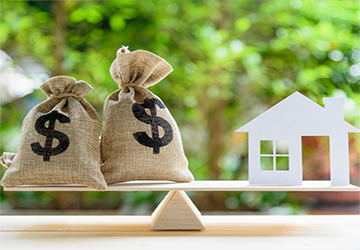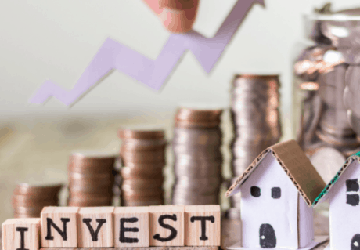Deciding to refinance your home can be like navigating a maze, with countless factors affecting your path. It's not just about shopping for a lower interest rate; it's about thoroughly understanding the financial environment and your tax goals.

Understanding the basics of refinancing
To determine the best time to refinance your mortgage, you must understand the nature of the refinance process. Refinancing involves replacing an existing mortgage with a new agreement, often to take advantage of lower interest rates, change the loan term, or convert equity into equity in the home.
Key considerations
●Applicable interest rates: The primary motivation for refinancing is falling interest rates. Conventional wisdom is that refinancing makes sense if it lowers your interest rate by at least 0.75% to 1%.
●Your financial goals: Whether you want to reduce your monthly expenses, change loan terms, or liquidate equity, your goals will significantly impact the timing of refinancing.
●Processing costs: There are costs involved in refinancing. Closing costs can vary between 2% and 5% of the loan amount. It's essential to evaluate whether your refinancing savings will offset these costs.
The best time to refinance your mortgage.
The best time to refinance your mortgage depends on market dynamics and financial situation. Here are the situations when mortgage refinancing may be beneficial:
●Interest rates have dropped: A significant drop since you took out your first mortgage may indicate that it's time to consider refinancing.
●Improve your credit score: Improving your credit score can qualify you for cheaper interest rates. If your credit score has improved since your first mortgage, refinancing may help.
●Evolution of your financial situation: If your financial situation has evolved to finance the transition from a 30-year mortgage to a 15-year mortgage, you can save money on interest over the life of the loan.
When should you consider refinancing your home?
● Stable economic environment: In times of economic stability, interest rates are generally more predictable and provide excellent opportunities to lock in lower interest rates.
●Consider a long-term stay: To cover the final costs of refinancing, the most important thing is that you live in your home long enough.
●Early retirement: Lowering your interest rate through refinancing can reduce your monthly payments, which is a blessing for those approaching retirement.
Refinancing Timing and Rates
Refinance timing and interest rates have a symbiotic relationship. The timing of refinancing can significantly affect the interest rate you receive and, therefore, your financial longevity.
●Federal Reserve Policy: Monitor the Federal Reserve's interest rate decisions as they directly affect mortgage rates.
●Economic health indicators: Economic vitality indicators, such as inflation and employment statistics, can predict future interest rate movements.
Refinancing Timing Strategies
●Interest rate vigilance: Carefully track mortgage rates and their fluctuations.
● Calculate the break-even point: Determine whether the time savings from refinancing will exceed the closing costs.
●Work with a financial advisor: A financial advisor can provide tailored advice on when to consider refinancing your home, tailoring the advice to your financial situation.

Interpreting the economic model and its impact on mortgage rates
●Economic rhythm: Understanding the ups and downs of the economic cycle can provide a perspective on possible changes in interest rates.
●Impact of global events: Global events could cause ripples in the domestic financial sector and impact mortgage rates. It is crucial to keep abreast of developments or changes in the international economy.
Regulatory framework conditions and the impact of monetary policy
● Regulatory changes: Legislative changes may affect interest rates and the attractiveness of bonds, affecting refinancing by changing lending standards.
●Insight into central bank decisions: The central bank's strategic decision to adjust monetary policy is crucial and may bring opportunities for favourable refinancing.
Stay vigilant about your finances.
If you're considering refinancing, it's essential to evaluate your financial situation carefully. This check goes far beyond simply comparing current interest rates or loan terms.
Financial Stability and Equity Assessment
● Home Equity Status: Assessing the equity level in your home is critical because it can significantly impact your refinance decision, especially the cash-out refinance option.
●Consider debt-to-income ratio: An optimized debt-to-income ratio increases your likelihood of a more favourable refinance deal.
Imagine your financial development.
●Future Financial Goals: Customize your refinancing strategy based on your long-term financial goals for retirement or further investment.
●Flexibility to face financial changes: Consider how refinancing relates to your ability to deal with unforeseen economic fluctuations.
Strategic Selection of Refinancing Partners
Choosing the right refinance lender is just as important as timing the market. Not all providers offer the same terms, rates, or customer experience.
In-depth analysis and validation of selections
●Comparative analysis of interest rates and terms: In-depth exploration and comparison of different lenders' interest rates, terms, and fees to find the ideal lender.
● Lender's reputation and service quality: Assess the lender's reputation and customer service record, considering the simplicity and completeness of its operations.
Negotiation and exploration of special offers
●Rate and fee negotiation: Negotiating terms and fees can bring significant long-term financial benefits.
●Access to Exclusive Programs: Explore the lender's exclusive refinance programs tailored for veterans, inexperienced homeowners, or individuals with unique financial situations.
Develop a flexible refinancing strategy.
Refinancing should not be an impulsive reaction but should be part of a forward-looking, strategic financial plan. Anticipating future economic uncertainty can help protect your mortgage from potential instability.
Alignment through strategic financial planning
●Evaluate a Fixed or Variable Rate Mortgage: Analyze the merits of a fixed or variable rate mortgage, considering your financial stability and risk tolerance.
●Fully understand the refinance agreement: Understand the terms of your refinance deal, including any restrictions on paying off the loan early or selling the property.
Use refinancing to strengthen your taxes.
●Shift savings into investments: Consider reallocating refinance proceeds or withdrawals into financial growth opportunities.
●Debt Consolidation as Financial Leverage: Use refinancing to consolidate high-interest debt to improve your financial performance and credit score.
Conclusion
The decision to refinance your home is nuanced and influenced by personal financial goals, market conditions, and prevailing interest rates. A solid understanding of when it is the best time to refinance your mortgage when to consider refinancing your home, and how refinancing timing and interest rates interact will give you the insight you need to make an informed decision.



